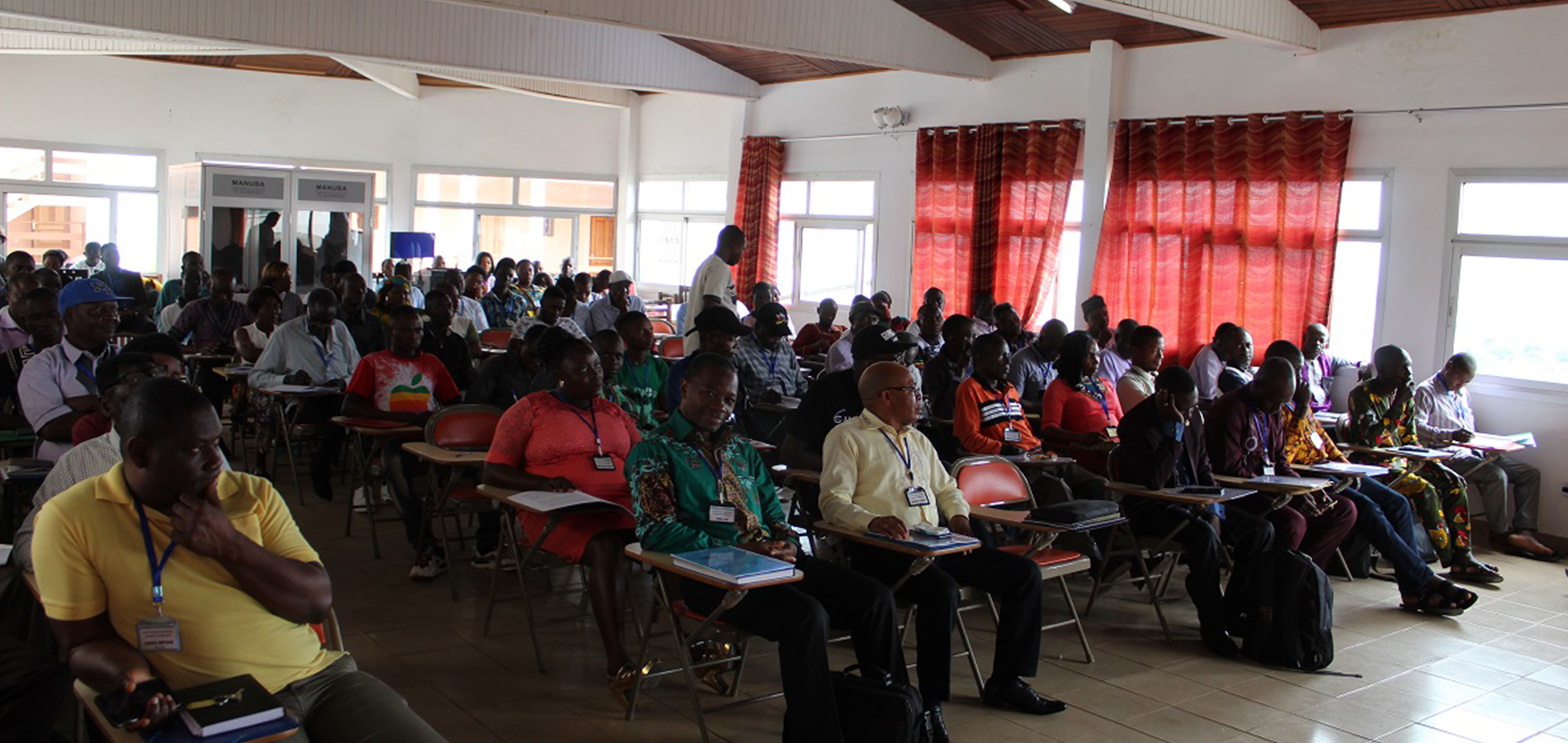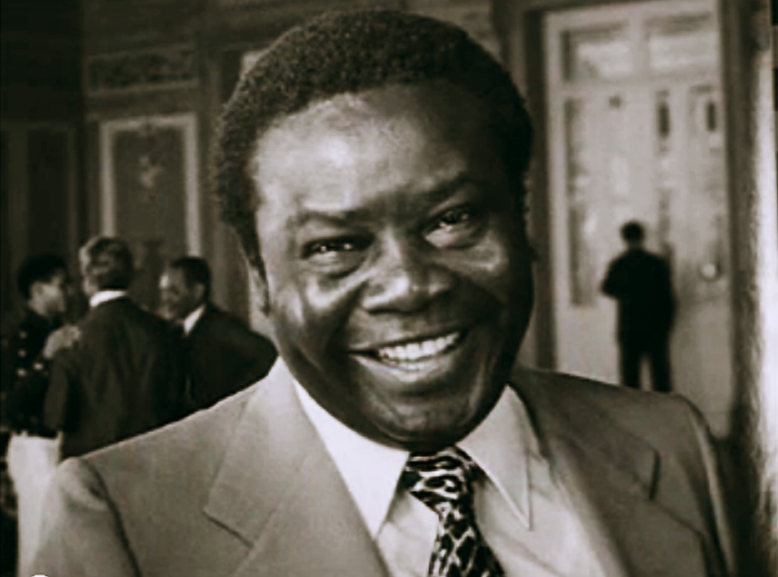
The Bahá’í Faith was brought to Cameroon in 1953 by Mr. Enoch Olinga of Uganda who settled in Limbe. He was accompanied by an Iranian couple: Ali and Violette Nakhjavani who were resident in Uganda at the time.
On 21st April 1954, the first Baha’i local governing council was formed in Limbe. Slightly over a decade later in 1967, the first national governing body, called the National Spiritual Assembly of the Bahá’ís of Cameroon, was elected. Through several teaching campaigns, many people throughout the country have joined the Faith and are finding inspiration and guidance in the teachings of Bahá’u’lláh. Baha’is and their friends are striving to translate Bahá’u’lláh’s spiritual teachings into actions for the betterment of their community and the world at large.

Enoch Olinga, Knight of Baha'u'llah
British Southern Cameroons
Today, there are over 40,000 Bahá’ís in nearly 1,800 localities spread across all the ten regions of the country. They come from diverse ethnic, social, cultural, and religious backgrounds, yet they study a common set of sacred Writings and are exploring together how to build a society that is materially and spiritually prosperous. The Bahá’í community has no clergy, its affairs are administered at local and national levels by institutions called Spiritual Assemblies composed of nine members elected annually. The governing council of the Bahá’í Faith at the global level is called the Universal House of Justice.
The Bahá’ís of Cameroon are working tirelessly to promote individual and collective transformation through community-building activities including devotional meetings, study circles, classes for the education of children and the junior youth spiritual empowerment programme. The primary goal is to build capacities for service to humanity.
All these efforts are coordinated by institutions at the national, regional, cluster, and local levels. At the national level, the institution is the National Spiritual Assembly of the Bahá’ís of Cameroon which administers the affairs of the Faith in the country. There are four Regional Bahá’í Councils that ensure the prosecution of plans for the development of the Faith in their respective regions. These are the Regional Bahá’í Councils for the Northern Region; East Region; Western Region; and Centre South Littoral Region. Each of these regions has a number of cluster agencies including Area Teaching Committees. In every locality where there are nine or more Bahá’ís, a Local Spiritual Assembly has been formed. These institutions collectively, constitute what is known as Bahá’í Administration
